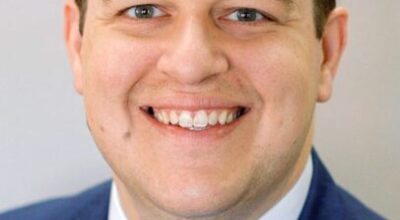Stand in the Gap helping fight drug abuse; Organization working across state, county lines
Published 3:35 pm Thursday, March 11, 2021
|
Getting your Trinity Audio player ready...
|
The Stand in the Gap Coalition, a tri-state organization focused on fighting drug abuse, is making strides toward implementing a standardized substance abuse education program in schools.
Stand in the Gap Coalition Director Dan Spurlock pointed out the organization, which has been a tri-state concern encompassing Tennessee, Virginia, and Kentucky since its beginnings in 2010, is currently focused on standardized substance abuse education.
“Stand in the Gap has for over a year now been pursuing a standardized course of instruction for every child in the school system in the state of Tennessee,” Spurlock said. “At this very moment, there is no standardized or mandated legislation for each child to get the same amount of drug awareness and substance abuse training, and that could create a problem for children who just didn’t get the correct information.”
According to Spurlock, the group contacted Tennessee State Representative Mark White who chairs the education committee. White invited the Stand in the Gap Coalition to give a presentation before the committee.
“What we are proposing is that annually each child from the 5th through the 12th grades gets standardized and consistent drug awareness training…with six classroom hours in the course of a year, three each semester,” Spurlock said. “Parents, teachers, and school resource officers get three hours of this training annually. Of course, that will be voluntary, but what we found out is that parents and teachers are not able to keep up with this commercial assault on our kids with a lot of drug paraphernalia.”
The group made a well-received presentation in front of the Education Committee, according to Spurlock. Follow-up meetings with the Tennessee Superintendent of Schools are expected to follow.
“There are many people doing some of this training,” Spurlock said. “But it’s fragmented in all different places. What we propose is…let’s find out what programs are already out there and let’s see if we can’t bring them together for one comprehensive training.”
Spurlock says this type of comprehensive training of this nature is important because statistically, a child who received such instruction is a less than 10 percent chance that child will not complete high school.
“One of the greatest reasons…a child will not graduate from school is drug involvement,” Spurlock said. “The second statistic that goes with that is…if this child gets this type of training upon graduation less than 20 percent will take up an addictive process as an adult.”
Spurlock added that the group’s efforts are not limited to Tennessee but are active in Kentucky as well.
“It’s the tri-state area,” Spurlock explained. “We’re very familiar with Kentucky, we’re familiar with Operation Unite, who are our friends. The Stand in the Gap Coalition has been a Tri-State concern from the very beginning.”
The group has also had a direct impact on Middlesboro and Bell County.
“In 2019, we trained over 3,000 students on substance abuse and addictive processes (SAAP),” Spurlock said. “We trained all the schools in Middlesboro and we trained all the schools in Bell County. We would have been back there doing recurrent training if it were not for COVID.”
Spurlock explained while the coalition is faith-based, they work with all types of people and organizations.
“Our primary focus is with children and students,” Spurlock said. “What we know is, if we can reach these students at an early age, we’re going to have our first generation that’s going to say no way I’m I going to be involved in illicit drug activities.”
According to Spurlock, Operation Unite is looking into the program.
“I know Kentucky is looking at that too,” Spurlock said. “It is a worthwhile program that many people are looking at.”
Anybody wishing to volunteer with the Stand in the Gap Coalition can go to the group’s website at www.sigco.org.
“We also have a phone number, 423-300-1302,” Spurlock said. “There will be somebody there to take the call and answer some questions.”







